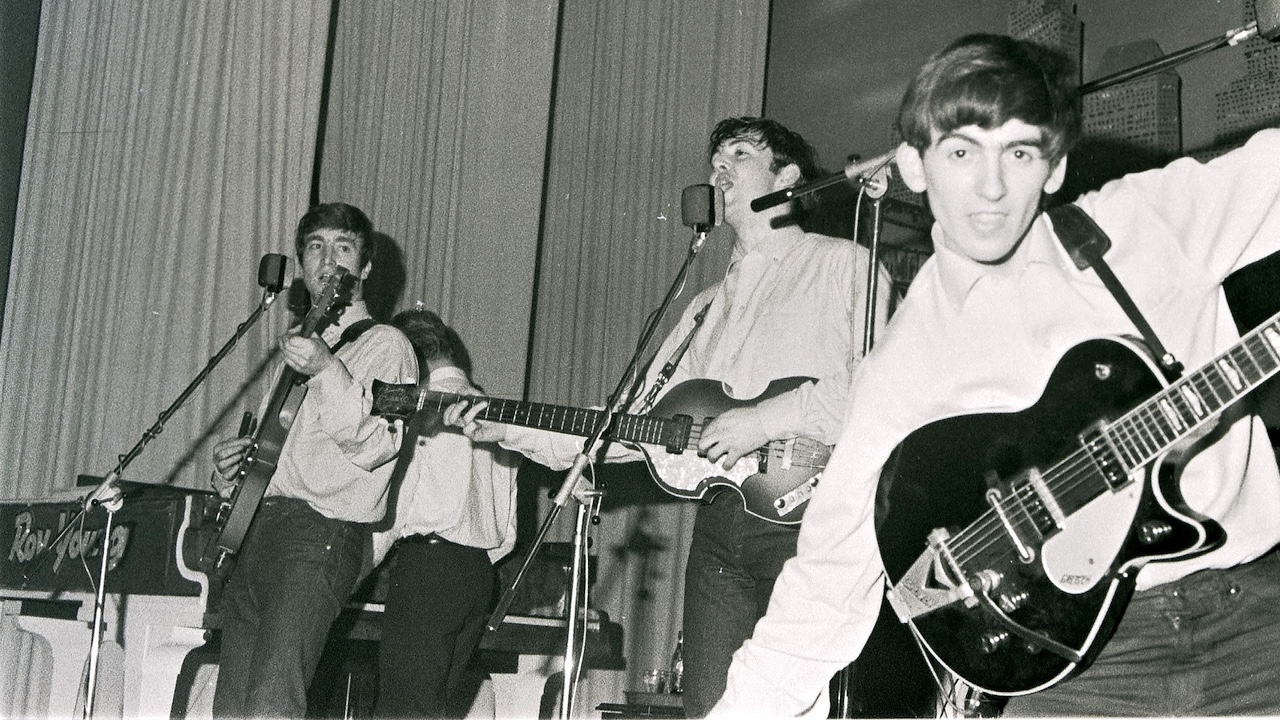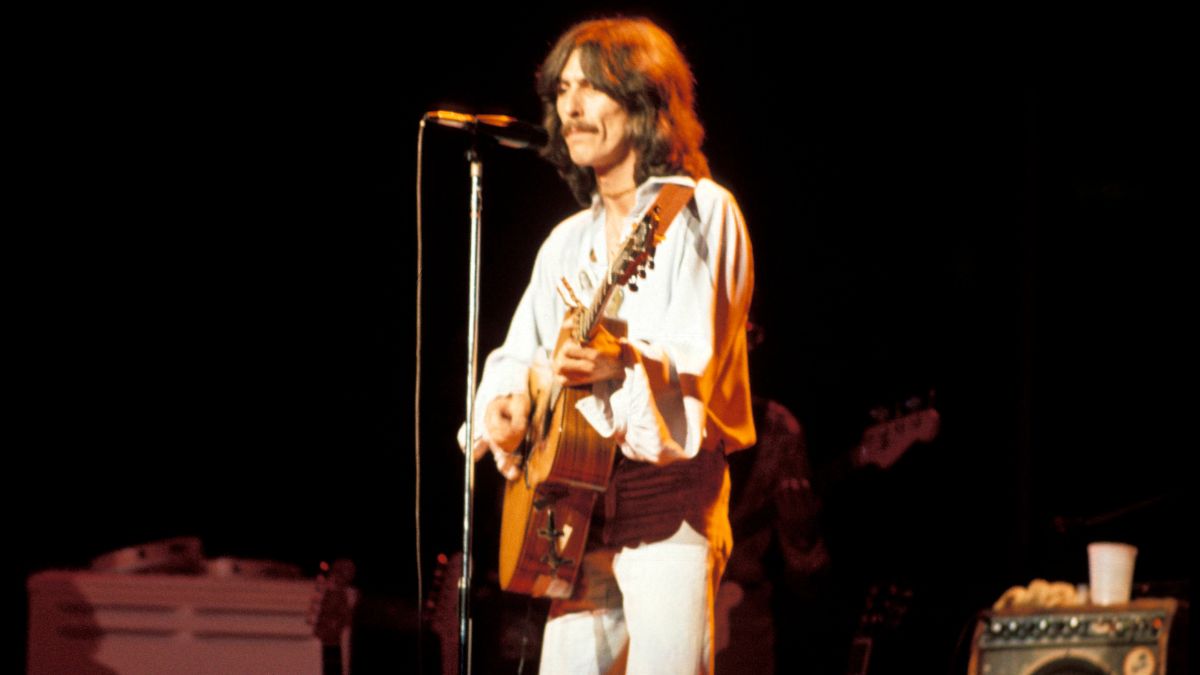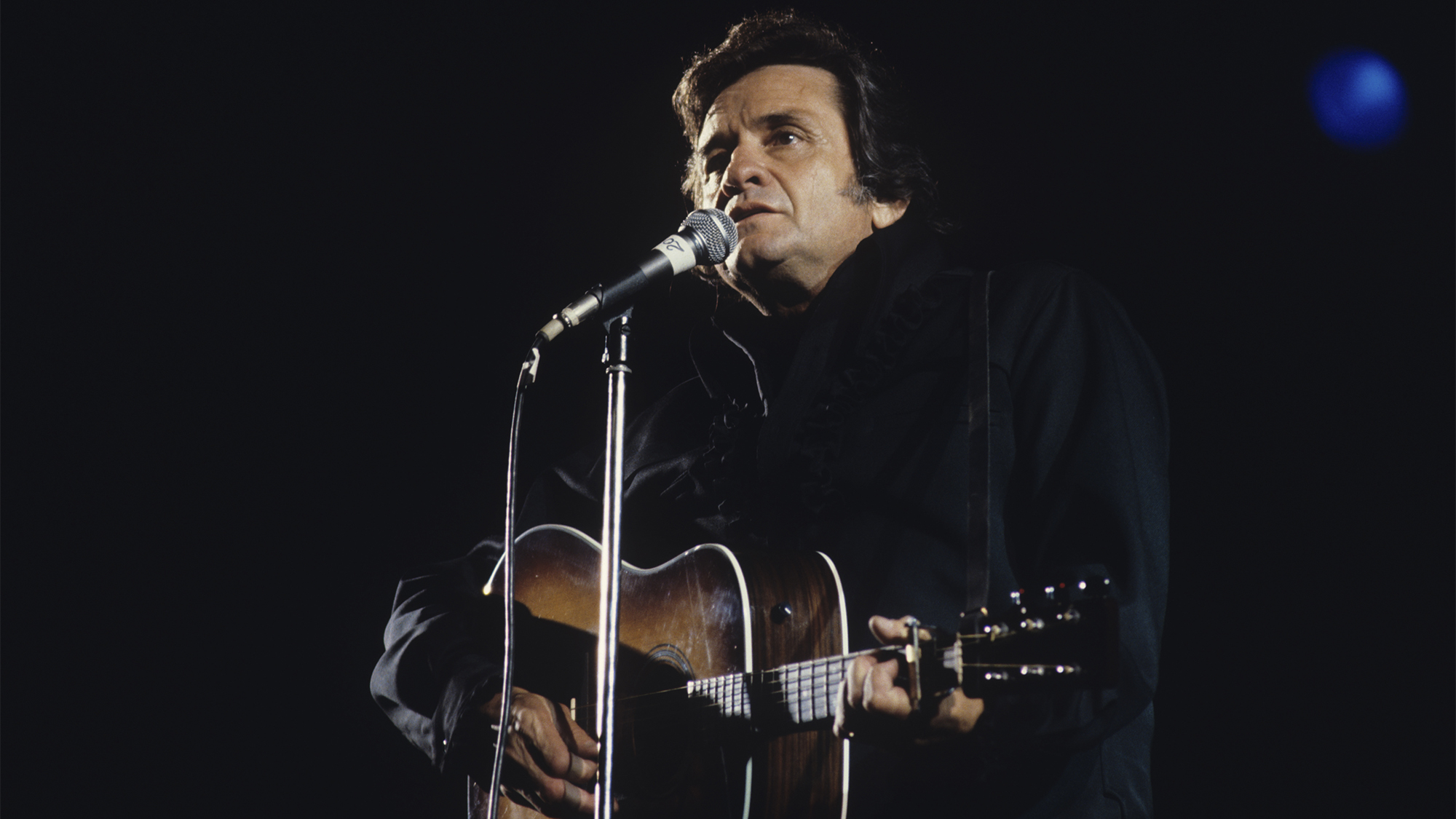“He was always the noisy one; we gained strength from each other.” Watch George Harrison talk about the power of comedy and why the Beatles clicked with the public in a resurfaced 1981 interview
In 1981, George Harrison appeared on Good Morning America to talk about how he navigated life after the Beatles' break-up

All the latest guitar news, interviews, lessons, reviews, deals and more, direct to your inbox!
You are now subscribed
Your newsletter sign-up was successful
When the Beatles broke up in 1970, bringing to an end a decade of music-making that changed the shape of popular culture forever, it had a profound effect on their fan base. But it also impacted the Fab Four, too.
The death of the band was, in truth, a perfect storm of factors. Personal and creative differences along with business matters – the quartet of Liverpudlians had gone from working-class nobodies to the world's biggest pop stars in record time – meant their break-up was inevitable. As the news sunk in, the next steps from the individual members were eagerly awaited.
Their 12th and final album, "Let It Be", was released in May 1970. In the months that followed, John Lennon, Ringo Starr, and George Harrison had all put out new solo albums – though Lennon's is credited as the John Lennon/Plastic Ono Band. Paul McCartney had already put out a debut solo release, "McCartney" in March after recording it in secret, and both he and Lennon would release follow-ups the next year.
While Harrison would go on to have a fairly prolific solo career – temporarily blighted by his troubled "Dark Horse" tour – he also turned to an unlikely muse as he looked to adjust to life after the Beatles.
“In the late ‘60s, when [British comedy group] Monty Python first came on television in the UK, there [were similarities],” he says in a recently unearthed interview with David Hartman from 1981.
“What the Beatles represented, we were trying to be something new and give some alternatives. Likewise, in the comedy situation, everything was pretty boring for years and years, I thought. Then Python came along with this totally off-the-wall type of humor. They didn't leave many stones unturned.
“So, going into the '70s, it was a bit depressing. It was good to have a laugh and for something to keep me smiling.”
All the latest guitar news, interviews, lessons, reviews, deals and more, direct to your inbox!
Indeed, Harrison co-founded HandMade Films in 1978 and helped fund the making of the group's film, "Life of Brian", after their original backers had pulled out. His contributions were rewarded with a small cameo as Mr. Papadopoulos, and their working relationship would extend into the '80s.
Harrison’s interview with Hartman served to promote two new projects: his album, "Somewhere in England", and his scoring of the film "Time Bandits", which featured three Python members.
In the resurfaced clip, Hartman then asks if he felt there was pressure for the Beatles' members to continue releasing music after the band had split. Their output of 12 albums in seven years was impressive, and he felt many fans expected more of the same from their solo projects.
“There's not too much pressure to produce records, but it's what we do, it's what we've done in the past,” he replied, deeming their time in the Beatles as their “apprenticeship.”
“The pressure is now coming from the other way,” develops. “Everyone and their granny is in the music business. Everybody has million-dollar record deals, to the point where the record business is so saturated that a rot set in on the radio. Nobody knows what people want, or some people think they know what the public wants, so there's this great confusion.
“The most difficult thing is trying to continue with what comes naturally and hoping that, somehow, it still fits into the picture.”

In the 11 years between “Let it Be” and “Somewhere in England”, Harrison had released a further six albums. That’s hardly a muted output, but one of his most poignant solo songs featured on “Somewhere in England”.
“All Those Years Ago” was written before John Lennon’s murder in 1980, but his death saw him rewrite the lyrics as a tribute. That led to Hartman asking Harrison to reflect on his partnership and friendship with Lennon.
“Well, it's pretty hard to say in a minute or so,” was his retort. “We grew up together. I was about 13 when I first met him. He was a tough guy, he wanted to do something different, and likewise so did I and Paul.
“We gained strength from each other. He was always the noisy one; he'd be more outspoken than the others. I think that was important: John being upmarket with the intellectuals, Paul being cute, and Ringo being cuddly. I was the quiet one, so it all kind of worked out.
“It helps having the music,” he then says, before being cut off by timing issues. But even with that incomplete sentence, he makes a point. Though he never turned his back on music after the Beatles, Harrison needed a little comic relief too. But when tragedy struck, it was music that helped him express his emotions.
Earlier this year, gypsy jazz guitarist Robin Nolan, who Harrison had brought under his wing, turned one of his unused chord progressions into a brand new song. It sits as the focal point on a new tribute album recorded with a number of his guitars.
And David Crosby has recalled the moment Harrison fell in love with Ravi Shankar's music after loaning him one of the sitar great's records.
A freelance writer with a penchant for music that gets weird, Phil is a regular contributor to Prog, Guitar World, and Total Guitar magazines and is especially keen on shining a light on unknown artists. Outside of the journalism realm, you can find him writing angular riffs in progressive metal band, Prognosis, in which he slings an 8-string Strandberg Boden Original, churning that low string through a variety of tunings. He's also a published author and is currently penning his debut novel which chucks fantasy, mythology and humanity into a great big melting pot.


